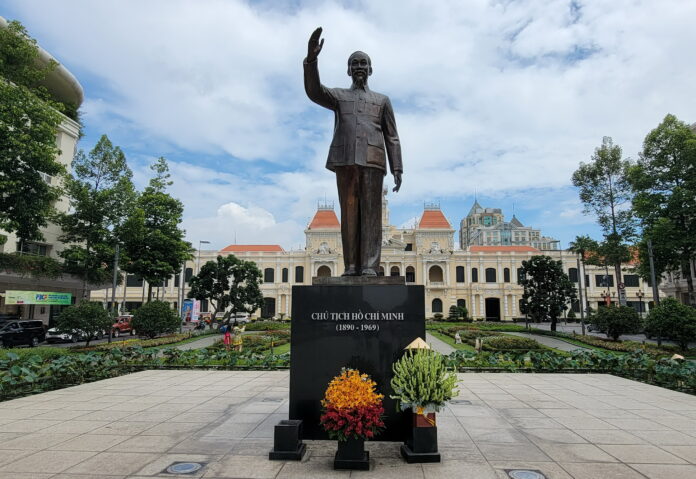Ho Chi Minh, also known as “Uncle Ho,” is a towering figure in Vietnamese history and a symbol of the country’s struggle for independence and unification. His life and legacy are filled with fascinating and inspiring details. Here are some interesting facts about Ho Chi Minh:
1. Multiple Names
Ho Chi Minh was born as Nguyen Sinh Cung in 1890. Throughout his life, he adopted several aliases, including Nguyen Tat Thanh, Nguyen Ai Quoc (Nguyen the Patriot), and finally Ho Chi Minh, which means “Bringer of Light.”
2. Extensive Travels
Before becoming a revolutionary leader, Ho Chi Minh traveled extensively around the world. He worked as a cook’s helper on a French steamer, which allowed him to visit countries such as the United States, the United Kingdom, France, and many others. These travels exposed him to various political ideologies and the plight of colonized peoples.
3. Formation of the Indochinese Communist Party
In 1930, Ho Chi Minh founded the Indochinese Communist Party (ICP) in Hong Kong. This was a pivotal step in organizing the revolutionary movement in Vietnam against French colonial rule.
4. Declaration of Independence
On September 2, 1945, Ho Chi Minh proclaimed Vietnam’s independence from France in Hanoi’s Ba Dinh Square. The declaration, inspired by the American Declaration of Independence, marked the birth of the Democratic Republic of Vietnam.
5. Leadership During the Vietnam War
Ho Chi Minh was the leader of North Vietnam during the Vietnam War (1955-1975). He played a crucial role in the Vietnamese struggle against the United States and South Vietnamese forces, advocating for national reunification.
6. Influence of Marxism-Leninism
Ho Chi Minh was heavily influenced by Marxist-Leninist ideologies. He studied communist theories in the Soviet Union and China and applied these principles to his revolutionary activities in Vietnam.
7. Ho Chi Minh Trail
The Ho Chi Minh Trail was a vital supply route used by North Vietnamese forces during the Vietnam War. This network of paths and roads through Laos and Cambodia allowed for the transport of troops and supplies, playing a crucial role in the North Vietnamese victory.
8. Legacy and Memorials
Ho Chi Minh’s legacy is celebrated throughout Vietnam. The country’s largest city, formerly known as Saigon, was renamed Ho Chi Minh City in his honor. His embalmed body is displayed in a mausoleum in Hanoi, which is a site of pilgrimage for many Vietnamese.
9. Simple Lifestyle
Despite his significant political status, Ho Chi Minh led a modest and simple lifestyle. He lived in a stilt house behind the Presidential Palace in Hanoi, reflecting his commitment to the values of humility and simplicity.
10. Author and Poet
Ho Chi Minh was also a writer and poet. He wrote numerous articles, books, and poems throughout his life, often using his literary talents to inspire and motivate the Vietnamese people in their struggle for independence.
11. Founding of the Viet Minh
In 1941, Ho Chi Minh founded the Viet Minh (League for the Independence of Vietnam), a national liberation movement that played a crucial role in resisting Japanese occupation during World War II and later fought against French colonial forces.
12. Iconic Image
Ho Chi Minh’s image, with his distinctive beard and traditional Vietnamese attire, has become an iconic representation of Vietnamese nationalism and resistance. His portraits and statues are common across Vietnam.
13. Educational Influence
Ho Chi Minh’s influence extends to education in Vietnam. Numerous schools, universities, and educational institutions are named after him, reflecting his impact on the country’s intellectual and ideological development.
14. Cultural Impact
Ho Chi Minh is a central figure in Vietnamese culture. Songs, literature, and films often depict his life and contributions to the country’s independence. He remains a revered figure, symbolizing Vietnam’s resilience and determination.
15. Global Recognition
Ho Chi Minh is recognized globally as a key figure in the anti-colonial movement. His leadership and strategies in the struggle for Vietnamese independence have been studied and admired by many leaders and activists worldwide.
